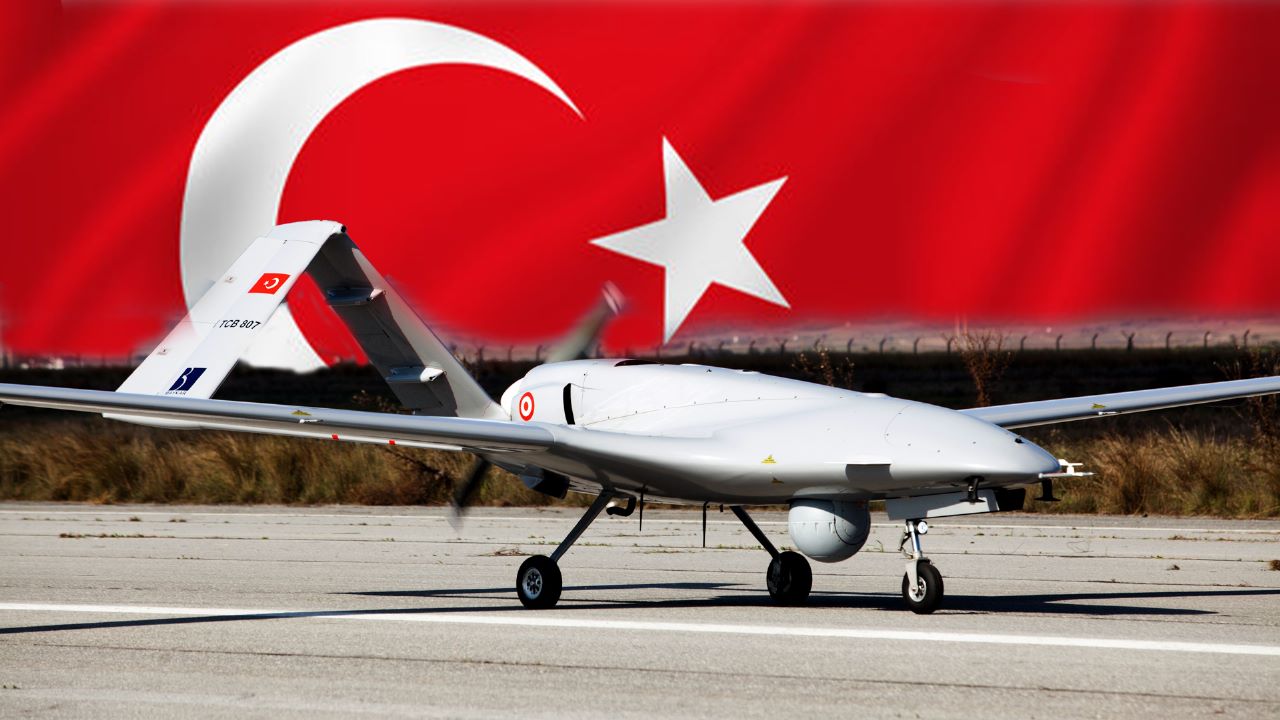The news about Turkey’s reluctance to export defense equipment to India created a diplomatic furor as both countries denied such a policy. However, the EurAsian Times got access to the meeting minutes where Mustafa Murat Şeker talks about how the Turkish Foreign Affairs Minister does not approve of exporting any defense products to India.
It is another fact that India has never put in any request for any military equipment from Turkey.
The sale of Turkish defense articles abroad requires prior approval from the Turkish military, the SSB, and the Foreign Ministry. Şeker is the deputy chairman of the Presidency of the Defense Industry (SSB) and spoke during a debate at the Foreign Affairs Committee on July 10, 2024.
“India, for example, is one of the world’s top five arms importers, a massive market, importing close to $100 billion. However, due to our political circumstances and our friendship with Pakistan, our Ministry of Foreign Affairs does not give us positive feedback on exporting any products to India, and consequently, we do not grant any permits to our companies in this regard,” he said according to the minutes of the meeting in possession of the EurAsian Times.
Has Turkey banned military exports to India?
While there may not be an official policy, documents clearly show that the Turkish Foreign Affairs Minister does not approve of exporting any defense products to India.@MEAIndia @DrSJaishankar @firatsunel @TC_YeniDelhiBE… pic.twitter.com/r3FuMht8gp
— EurAsian Times (@THEEURASIATIMES) July 24, 2024
Indian media ‘Times Now’ claimed doing a Fact Check and quoted Turkish Ambassador Firat Sunel who seconded the information. However, it appears that ‘Times Now’ failed to do an in-depth investigation to unravel the truth.The document clearly shows an unofficial policy in place within the Turkish dispensation against defense exports to India.
In response to the claims, Randhir Jaiswal, the official spokesperson of the MEA, said: “As far as my knowledge is concerned and information is concerned, that information is not good. So I will refer you to please take that question to the Turkish Embassy who can for short give you an answer because it is a post which generated in Turkey. To my understanding, to the best of my knowledge, it is disinformation at best.”
Turkey’s defense relationship with Pakistan has seen a sharp upward trajectory following the failed coup attempt in 2016.
Pakistani Air Vice Marshal Ghulam Abbas Ghumman confirmed how the Pakistan Air Force provided fighter pilots to Turkey following the 2016 coup d’état attempt. Turkey has officially denied that Pakistani pilots manned their fighter jets after their Turkish counterparts were purged following the failed coup d’état attempt, which President Recep Tayyip Erdoğan blames on being orchestrated by the Turkish Air Force.
Following the purges, Turkey’s air force disbanded several units and incarcerated a number of personnel, resulting in serious pilot shortages. This closeness resulted in Pakistan inducting Turkish drones into its inventory to complement its Chinese UAVs. In early 2022, the PAF received its first Bayraktar TB-2 UAVs, and as of April 2022, the PAF had deployed them at Murid Airbase.

The PAF is said to have received at least 20 Bayraktar TB-2s, with a larger number still on order.
On August 21, Turkish Aerospace Industries and Pakistan’s National Engineering and Science Commission signed a Memorandum of Understanding to jointly produce Anka military drones and their components.
In such a scenario, Turkey has never been an option for India to import defense equipment.
“As far as I understand, there is no ‘blanket ban’. There are issues where reciprocity has yet to be practiced by both sides. In general, they follow a subject-by-subject merit system. Indian exports to Turkey have reached $10 billion, including exports to Turkey’s expanding defense industry. As long as Turkey and India do not have a regular mechanism in place, such issues will remain there,” Professor Omair Anas, Assistant Professor at Ankara Yıldırım Beyazıt Üniversitesi told the EurAsian Times.
Professor Anas says that articles listed as “defense” may not be worth more than 5-10$ million in the entire export list from India to Turkey. However, heavy machines, steel, aluminum, and nuclear reactors remain among the top items.
Despite Turkey’s unwritten policy of refraining from exporting defense equipment to India, New Delhi is unaffected. In April, India’s Hindustan Shipyard Limited (HSL) terminated all agreements with Turkish firms to construct the fleet of five support ships for the Indian Navy and decided to go ahead with the construction on its own.
The project, estimated to cost between US $1.5 billion and $2 billion, initially envisaged the transfer of technology from Anadolu Shipyard, part of the Turkish TAIS consortium, with which HSL signed an agreement for technical collaboration in 2020.
- Ritu Sharma has been a journalist for over a decade, writing on defense, foreign affairs, and nuclear technology.
- The author can be reached at ritu.sharma (at) mail.com
- Follow EurAsian Times on Google News




